Keeping your car clean is essential for preserving its appearance, maintaining its value, and protecting it from dirt and environmental damage. When it comes to car washing, two options dominate the market—self service car washes and automatic car washes. But which one should you choose?
In this guide, we compare the pros, cons, and key differences between self-service car wash and automatic car washes to help you decide which method fits your budget, lifestyle, and vehicle care needs.
A self-service car wash is a facility that lets you wash your vehicle using provided tools and equipment. These usually include high pressure hoses, foam brushes, and vacuums. You control each step of the process, from rinsing to soaping and drying.
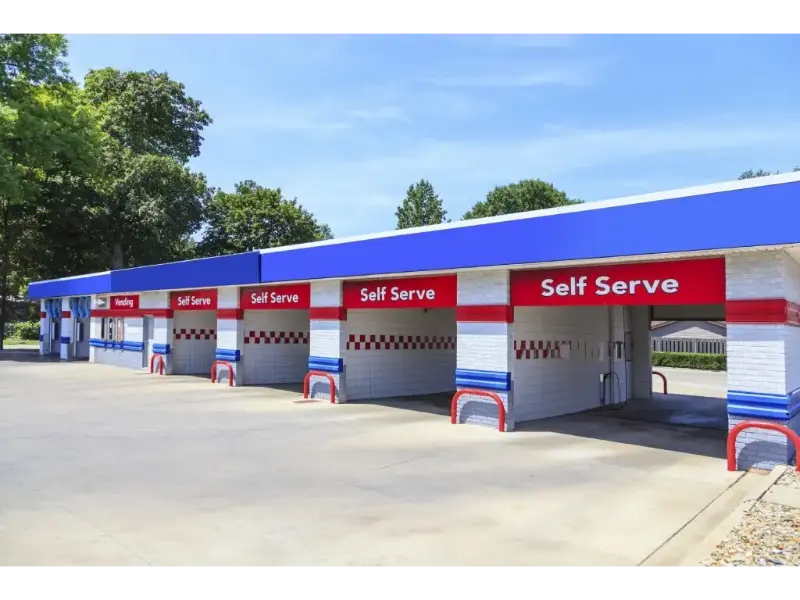
You can focus on specific areas such as wheels, undercarriage, or stubborn stains.
A typical self-service wash costs between $5 and $15 per session, making it a budget friendly choice.
You can use water more efficiently and choose biodegradable cleaning products.
Since you are in control, there is less risk of scratches from hard brushes or abrasive materials.
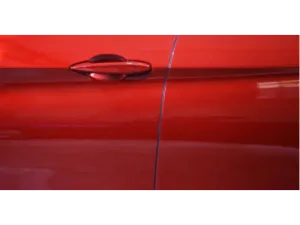
Washing your car manually takes longer and requires physical work.
If you are unfamiliar with the equipment, it may take time to use it effectively.
Most self-service stations offer only basic air dryers, so you may need to bring your own towels.
An automatic car wash uses conveyor systems, rotating brushes, sprayers, and dryers to clean your car without manual effort. These are often found at gas stations or dedicated car wash centers. You stay inside the vehicle or leave it to attendants depending on the system.
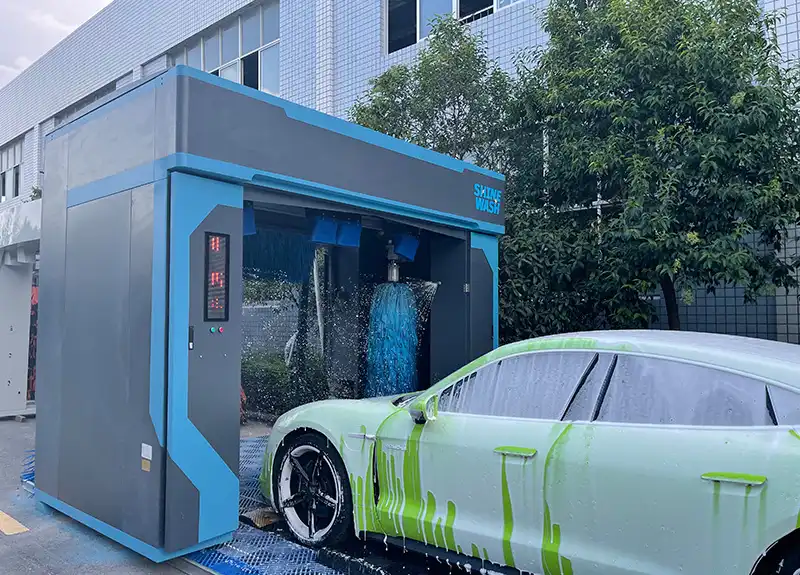
A complete wash takes just 5 to 10 minutes—ideal for busy drivers.
Automated processes ensure even and repeatable cleaning quality.
Many locations offer waxing, underbody cleaning, tire shine, and ceramic coatings.
Rain or shine, you can keep your car clean without worrying about outdoor conditions.
Prices range from $10 to over $25 depending on the package and extra services.
Some systems use stiff brushes that can cause micro-scratches, especially on dark or luxury car finishes. Touchless car washes help reduce this risk.
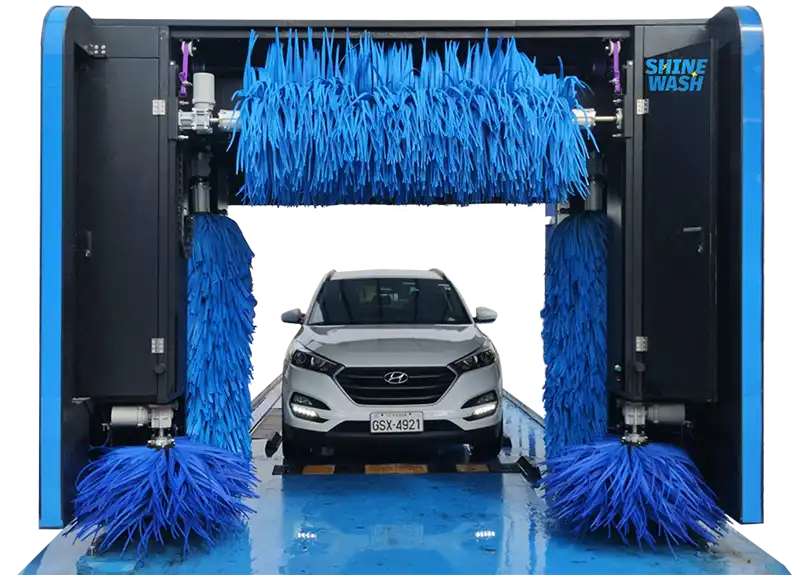
The machine follows a set routine, which may miss specific dirty spots like wheel rims.
Self service gives you full control over every step of the wash. Automatic car washes focus on speed and convenience with minimal effort.
Self service car washes are generally cheaper upfront. However, automatic car washes may be more cost effective in the long run, especially if you wash your car frequently and opt for subscription plans.
Touchless automatic car washes are designed to be gentle on car surfaces. Self-service car washes eliminate the risk of brush contact entirely, which is safer for sensitive paint jobs.
Manual users at self service stations can control water usage more effectively. Some automated car washes recycle water, but efficiency varies by system.
| Category | Self Service Car Wash | Automatic Car Wash |
| Control vs Convenience | Full control over every cleaning step. | Prioritizes speed and ease with minimal effort. |
| Cost | Lower upfront cost ($5–$15 per wash). | Higher cost ($10–$25+), but subscription plans may save money. |
| Vehicle Safety | No brushes used—eliminates risk of scratches. | Touchless options are gentle, but brush systems can cause damage. |
| Water Usage | Controlled by the user—typically more eco-friendly. | Varies by system; some use water recycling technology. |
If you’re planning to start a car wash business or purchase equipment, the choice between a self-service car wash system and an automatic car wash machine is a critical one. Your decision should be guided by business goals, budget, land size, and customer preferences.
Here are five key questions, along with relevant industry data, to help you choose the right investment:
Stat: According to the International Carwash Association, automatic washes generate up to 3× more revenue per wash than self-service bays.
Tip: If your space is limited, a compact automatic unit offers better ROI per square foot than multiple self-service bays.
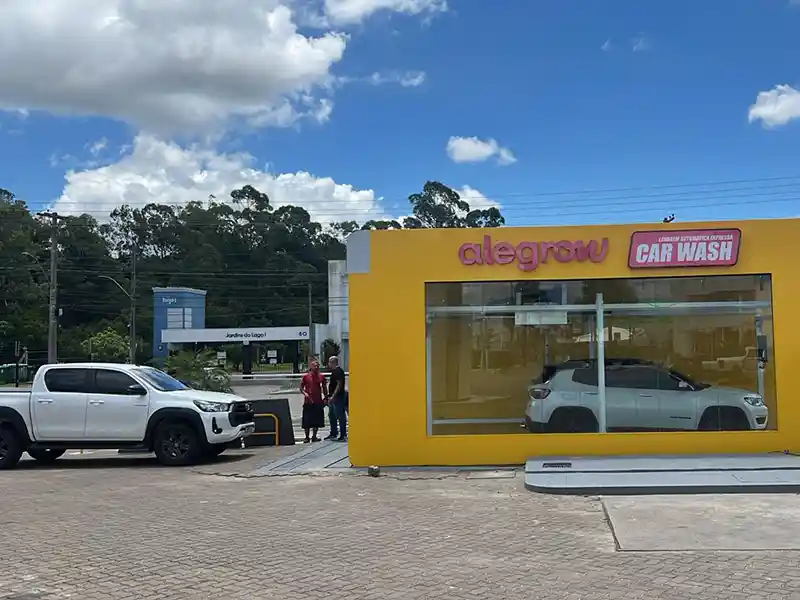
Stat: In the U.S., over 72% of car wash users prefer automatic car washes, with touchless options growing in popularity due to concerns over paint safety.
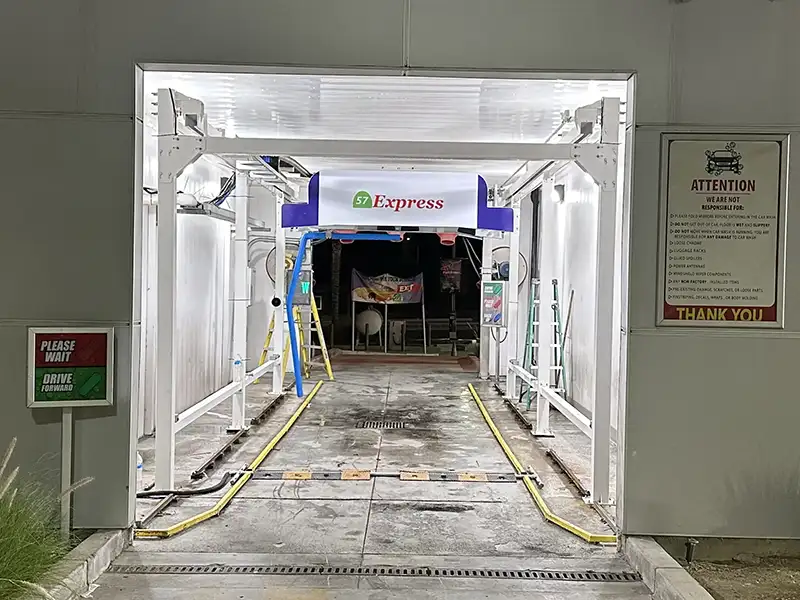
Example: A fully automated touchless car wash can handle 100–150 vehicles per day with only periodic maintenance—saving on labor costs long term.
Insight: A single-bay automatic machine can generate $8,000–$15,000+ per month, depending on traffic and pricing, whereas a single self-service bay may generate $2,000–$5,000.
Pro Tip: Many successful operators combine automated car washes for volume and self-service car wash bays for flexibility, maximizing customer reach and site efficiency.
Future-Proof Your Investment: To stay ahead of industry shifts, explore the 2025 Global Automatic Car Wash Machine Trends, where we analyze innovations in automation, AI, and sustainable car wash tech.

Still do not know which one to choose? Contact Shinewash experts for professional advice!